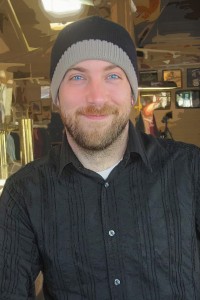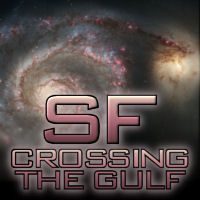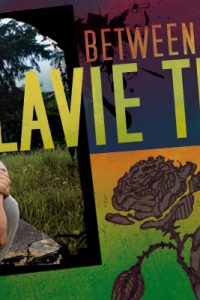Kay Kenyon: No Apologies

Kay Kenyon grew up in Duluth, Minnesota, attended the University of Minnesota, and earned an English degree from the University of Washington in 1979. She has worked as a model, actress for TV and radio commercials, copywriter, and urban planner. First novel The Seeds of Time appeared in 1997. Other standalone novels are Leap Point (1998), Rift (1999), Tropic of Creation (2000), Philip K. Dick Award finalist Maximum Ice (2002), and John W. Campbell Memorial Award finalist The Braided World (2003). New series The Entire and the Rose, “SF with a fantasy feel,” began with Endeavour Award nominee Bright of the Sky (2007) and continues with A World Too Near (2008) and City Without End (2009). A concluding volume, Prince of Storms, is forthcoming. She has also published a dozen short stories in various anthologies.
Kenyon lives now in Wenatchee, Washington. She chairs the Write on the River writers’ conference, now in its fourth year.
Excerpts from the interview:
“I come from an outsider background. My parents were avid Socialists and atheists in a community that was very organized around religion and church, as a lot of communities are, especially in the Midwest. I don’t know how much this upbringing influenced me; probably profoundly! My parents were social idealists, and they felt (in their atheism and Socialism) that they were blazing a path of truth in a forest of superstition. Their idea of proper books for children were Somerset Maugham, Sartre, and perhaps Charles Dickens (but maybe not). Politics was the center of our lives.
“I have reacted against that and become wary of politics, though the sense of idealism in Socialism led me to become a bit of an idealist myself, discontented with the status quo. It may have been David Hartwell who said ‘Science fiction tends to appeal to people who aren’t quite satisfied with how things are.’ If we’re looking for roots, I could go there.”
*
“I learned in high school that I loved to write book reports and essays, though people would look at me funny: ‘What? You’re an atheist and Socialist and you love to write?’ But it had never yet occurred to me that I could write fiction, and I’d never written any short stories before I started on a novel in the mid-’90s.
“Socialism is a wonderful idealistic framework for a future world that one might devoutly wish to have, but I was never convinced by it. And after that the Republican/Democrat dichotomy seemed useless; they began to seem (as my father would say) like Tweedledee and Tweedledum! So I drifted. And when I finally hit 40, I asked myself, ‘Well, what do I want to do with my life?’ It was a big-decade birthday, and I decided I wanted to do something more exciting than wrangle with local politics, which is what urban planning had become in the Seattle area.
“I had always loved science fiction. I grew up reading it, and fantasy to a lesser extent. In my various jobs, I’d been writing so many different things — I could write long, I could write short, give me a big manual and I’d be happy to do it — writing a novel just didn’t seem like a huge task. It didn’t intimidate me at all.
“Except, I was so wrong!”
*
“I always write to a large canvas, so it was a natural progression for me to want to write a series — something with a story arc spanning several books. My ongoing project, The Entire and The Rose, has a story arc that begins and ends in four books, so it’s a closed series. Beginning with Bright of the Sky, the series hits what Rudy Rucker calls the ‘power chords’ of science fiction. I use the power chords, but they’re pretty much in the background. The milieu has world-shattering nanotechnology, higher dimensions, alternate universes, aliens; at the same time I drill down into the central characters, so it’s got that marriage of character and adventure that is somewhat uncommon in our field.
“In this series, once again, the milieu came first. I love bizarre landscapes, so I asked, ‘What is the strangest world I can imagine?’ And I came up with this: ‘What would happen if there was a tunnel universe that burrowed through our own? How would it look? Well, you’d need a lid and walls, for starters. You could move around in our universe through theirs, and avoid faster-than-light travel. And if the tunnel universe is vast, you need a space-time folding mechanism for a transport system. So I built in the River Nigh, which flows down the five arms of this tunnel galaxy.”
*
“The future we’re headed toward is a little disconcerting to me (as it should be to you!) — the idea of the Singularity, and how far technology is going to go. So I’m writing stories that tend to beat back that wave, to assert humanity and to imagine a world where our human emotions still deeply matter. But there’s a competing side to his issue: when I’m writing about Titus Quinn I’m wondering, ‘Can his personal life matter, in the context of the big issues that he’s carrying on his shoulders?’ Even he has to ask that question. It’s a major theme of those books, and one I’m very interested in.”
*
“Science fiction is always apologizing for itself. We have to stop that. Like Janis Ian said, SF is the jazz of literature. It takes delight in its topics and its narratives, and when we start talking about it having a purpose, it’s like apologizing. That whole dialogue starts when we talk to people who don’t like science fiction, and we try to convince them that SF is useful.”
This interview and more like it in the June 2009 issue of Locus.
 While you are here, please take a moment to support Locus with a one-time or recurring donation. We rely on reader donations to keep the magazine and site going, and would like to keep the site paywall free, but WE NEED YOUR FINANCIAL SUPPORT to continue quality coverage of the science fiction and fantasy field.
While you are here, please take a moment to support Locus with a one-time or recurring donation. We rely on reader donations to keep the magazine and site going, and would like to keep the site paywall free, but WE NEED YOUR FINANCIAL SUPPORT to continue quality coverage of the science fiction and fantasy field.





